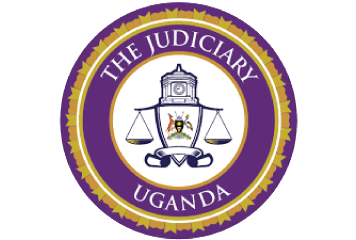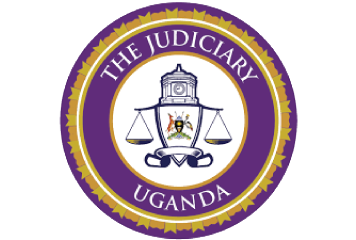
The Chief Justice, Hon. Justice Alfonse Chigamoy Owiny – Dollo, on Tuesday officially launched a transformative capacity-building programme for judicial officers at Acholi Inn in Gulu City. The week-long training, spearheaded by the Judicial Training Institute (JTI), focuses on case management, judgment writing, alternative dispute resolution (ADR), and coaching and mentoring, with the overarching goal of enhancing judicial efficiency and restoring public confidence in justice delivery.
The training has drawn participation from Judges, Deputy Registrars, Chief Magistrates, and Magistrates Grade One from the High Court Circuits of Kitgum, Patongo, Gulu, Arua, and Lira—regions grappling with some of the Judiciary’s heaviest case backlogs.
In his keynote address, the Chief Justice emphasized that delivering timely and fair justice is a constitutional obligation. He noted that case delays—especially in land, civil, and criminal matters—undermine the Judiciary’s credibility and deny citizens access to justice.
“People come to court not just for decisions, but for justice. If we delay, we deny them that justice,” the Chief Justice stated.
He commended the Judicial Training Institute for its data-driven, impact-oriented approach and urged judicial officers to adopt ADR and improved judgment writing practices. “Write your judgments in a manner that explains, convinces, and restores confidence,” he advised, stressing that the inclusion of coaching and mentoring elements reflected the Judiciary’s commitment to sustainable institutional reform.
Justice Owiny – Dollo also launched a new mentorship programme in which retired judges will coach junior judicial officers, beginning with the greater northern region. The initiative is expected to institutionalize a culture of continuous learning and professional excellence.
Justice Andrew Khaukha, Executive Director of the Judicial Training Institute, described the training as a shift toward evidence-based interventions. He highlighted the collaborative effort with the ADR Registry to identify mediation-ready cases, some of which are being addressed during the ongoing training. A comprehensive progress report will be issued in a month.
He further announced the formation of a dedicated ADR faculty comprising retired judges, including Deputy Chief Justice emeritus Richard Buteera, Justice Yorokamu Bamwine, and Justice David Wangutusi.
He commended the International Development Law Organization (IDLO) for its support, through its Uganda Country Manager, Ms. Wachia Barbara Kilei.
The Head of Gulu High Court Circuit, Justice Philip Odoki affirmed the training’s relevance. He underscored the region’s unique post-conflict justice challenges, particularly the high volume of land-related disputes, and welcomed the promotion of culturally sensitive ADR mechanisms. Justice Odoki also raised concerns about the voluntariness of plea bargains, especially in cases involving lengthy pre-trial detention, and called for careful oversight to safeguard justice.
Ms. Barbara Kilei, the Country Manager of the International Development Law Organization (IDLO), reaffirmed IDLO’s commitment to supporting Uganda’s justice sector, emphasizing that sustainable reform depends on building human capital and equipping judicial officers with practical skills in case management, judgment writing, and ADR.
She hailed the Judiciary’s efforts and welcomed the JTI’s focus on impact-driven training, particularly in underserved regions like northern Uganda.
Delivering remarks on behalf of the Acting Chief Registrar, HW Pamella Lamunu Ocaya, HW Nanteza Zulaika (Deputy Registrar in charge of the ADR Registry) emphasized the urgency of strengthening case management in light of over 167,000 pending matters.
She emphasized that judicial officers must proactively manage trials, guide pre-trial processes, and deliver clear, timely judgments, calling judgment writing both an art and a discipline essential for justice delivery.
The training is designed to equip Judicial Officers with practical tools to set procedural timelines, promote mediation, and improve the clarity and structure of decisions. Sessions also cover appellate judgment writing, plea bargaining, and ICT tools for legal research and drafting.
HW Lillian Bucyana, Acting Registrar of the JTI, moderated the opening ceremony.
Ruth Ashaba

